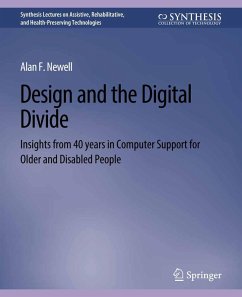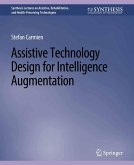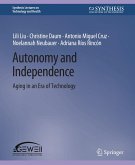Demographic trends and increasing support costs means that good design for older and disabled people is an economic necessity, as well as a moral imperative. Alan Newell has been described as "a visionary who stretches the imagination of all of us" and "truly ahead of his time." This monograph describes research ranging from developing communication systems for non-speaking and hearing-impaired people to technology to support older people, and addresses the particular challenges older people have with much modern technology. Alan recounts the insights gained from this research journey, and recommends a philosophy, and design practices, to reduce the "Digital Divide" between users of information technology and those who are excluded by the poor design of many current systems. How to create and lead interdisciplinary teams, and the practical and ethical challenges of working in clinically related fields are discussed. The concepts of "Ordinary and Extra-ordinary HCI", "User Sensitive Inclusive Design" , and "Design for Dynamic Diversity", and the use of "Creative Design" techniques are suggested as extensions of "User Centered" and "Universal Design." Also described are the use of professional theatre and other methods for raising designers' awareness of the challenges faced by older and disabled people, ways of engaging with these groups, and of ascertaining what they "want" rather than just what they "need." This monograph will give all Human Computer Interaction (HCI) practitioners and designers of both mainstream and specialized IT equipment much food for thought. Table of Contents: 40 years--Highlights and a Brief Review / Communication Systems for Non-Speaking and Hearing-Impaired People / TV Subtitling for Hearing-Impaired People / Word Prediction for Non-Speaking People and Systems for those with Dyslexia / Providing Reusable Conversation for Non-Speaking People / Story Telling and Emotion in Synthetic Speech / Lessons Learned from Designing AAC Devices / IT Systems for Older People / Designing IT Systems for Older People / Ordinary and Extra-Ordinary Human Computer Interaction / User Sensitive Inclusive Design / The Use of Professional Theatre / Attacking the Digital Divide
Dieser Download kann aus rechtlichen Gründen nur mit Rechnungsadresse in A, B, BG, CY, CZ, D, DK, EW, E, FIN, F, GR, HR, H, IRL, I, LT, L, LR, M, NL, PL, P, R, S, SLO, SK ausgeliefert werden.









